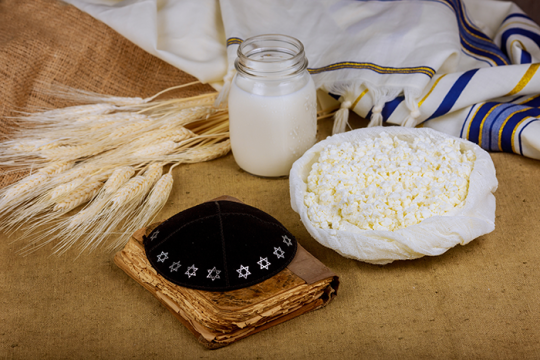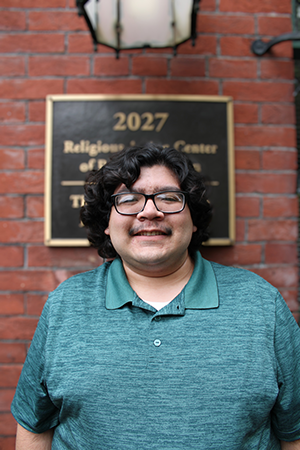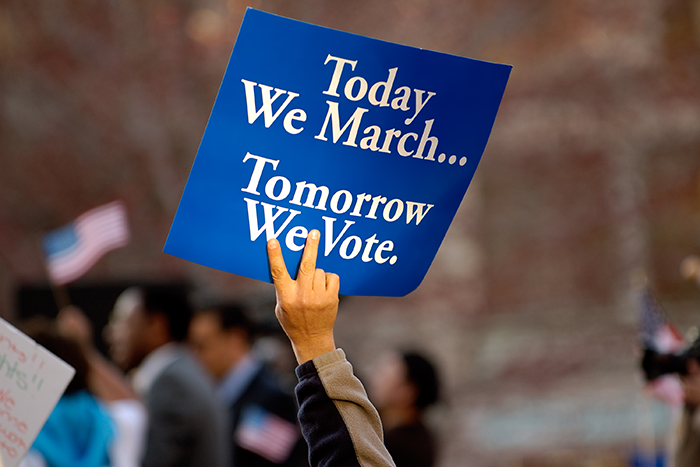
Late last month, we celebrated the birthday of the late Representative John Lewis, who passed away in 2020. We remember his unwavering commitment to justice, fight against segregation, advocacy for voting rights, and commitment to getting into "good trouble." Despite over forty arrests, physical assaults, and serious injuries, Representative Lewis' dedication to raising his voice and amplifying others' voices stands as a testament to the essence of Pirkei Avot 2:21 where we are reminded that while we "are not obligated to complete the work, neither are [we] free to desist from it."
Alongside Dr. Martin Luther King Jr, James Farmer, A. Phillip Randolph, Roy Wilkins, and Whitney Young, Rep. Lewis built upon the foundations laid by the preceding generation in the struggle for racial justice and a more equitable democracy. Our democracy is precious, and its health relies on our collective efforts to protect and nurture it, especially by guaranteeing access to the ballot. The ideals of democracy are eternally important and are especially important during an election year wherein we reaffirm our dedication to our constitution, our democracy, and our fellow citizens.
In the tradition of Deuteronomy, we stood united before the Eternal to enter a covenant that embraced the tribal heads, elders, officials, men, women, children, and the stranger. It was a collective covenant that transcended societal roles because for communities to flourish, every voice must be heard. In the modern context, accessibility to voting stands as a cornerstone in upholding this ideal-regardless of characteristics such as political affiliation, gender, class, religion, race, and economic status, all Americans should enjoy unimpeded access to the ballot.
Unfortunately, voting accessibility has faced a surge of restrictive bills designed to curtail ease of access. In 2023, 45 states proposed at least 325 restrictive bills in 2023, 17 of which passed in 14 states and will be in place for the 2024 general election. Furthermore, in the decade since Shelby County v. Holder, 29 states have enacted 93 restrictive voting laws. These laws limit voting accessibility through measures such as shortened voting periods, confusing mail-in voting procedures, restricted Election Day registration, increased reliance on faulty voter purges, and confusing address requirements for voter registration.
Ever since Shelby County v. Holder gutted a critical component of the Voting Rights Act (VRA), fresh challenges with the potential to further undermine the Act are making their way through the courts. One notable court case is Arkansas State Conference NAACP v. Arkansas Board of Apportionment , in which the Arkansas NAACP filed a lawsuit contending that new state legislative maps marginalized black voters, violating Section 2 of the Voting Rights Act which enabled the creation of majority-minority districts. In response, the District Court questioned whether the NAACP had the standing to challenge the maps, contrary to the long-established practice of allowing private parties to litigate over Section 2 grievances. Ultimately, the court asserted that only the Attorney General of the United States could initiate the case, effectively curtailing the ability for private parties to sue over Section 2 allegations. The Eighth Circuit upheld this decision and subsequently declined the request for a rehearing and because of this, the ability of communities facing potential voting rights violations find themselves unable to pursue legal recourse.
Furthermore, the creation of "coalition majority-minority districts" is under threat in Petteway v. Galveston County where a "coalition majority" formed out of Black and Latino voters was the county's only majority-minority district which also happens to be a coalition district. Section 2 of the Voting Rights Act has already faced challenges in the past. In 2021, the Supreme Court's ruling in Brnovich v. Democratic National Committee (DNC) practically rewrote the Voting Rights Act to make it more difficult to challenge discriminatory voting laws.
Undoubtedly, our democracy faces daunting challenges. It can bend and withstand these challenges; however, it can only bend so much before it eventually begins to break. Facing these challenges requires more than acknowledgment - it demands our constant engagement. Democracy isn't a static concept; it thrives in action and withers in passivity. As Representative Lewis wrote in Carry On: Reflections for a New Generation : "We cannot afford to let democracy slip away. We fought for that right. Demonstrated with bandages on our heads. We fought to prevent changes to the Voting Rights Act and then to restore it. We were weary, tired, but we had purpose. Don't take this right for granted. Don't squander it. Keep building. A vote is your voice being heard. A vote is your power. A vote is your change. A vote is sacred."
The Reform Movement has a rich history of active participation in the civil rights movement. Our commitment to social justice has always been strong. Rabbis marched alongside Dr. Martin Luther King Jr., and the Religious Action Center's building was where the civil rights community met to discuss and draft portions of the original Voting Rights Act. Now, we must continue our fight for voting rights.
Take Action:
- In early March, the John Lewis Voting Rights Advancement Act was reintroduced in the Senate. This bill would restore the full power of the Voting Rights Act of 1965 by modernizing the preclearance formula that prevents states from enacting restrictive voting laws. Urge Congress to pass the John Lewis Voting Rights Advancement Act.
- Join the Reform Movement's 2024 Every Voice, Every Vote campaign, our nonpartisan campaign to ensure all have an equal say in decisions that impact our lives. Order postcards to send to voters impacted by barriers to voting today and sign up for our next Every Voice, Every Vote, Every Month Zoom to learn and act with others across our Movement.
Related Posts
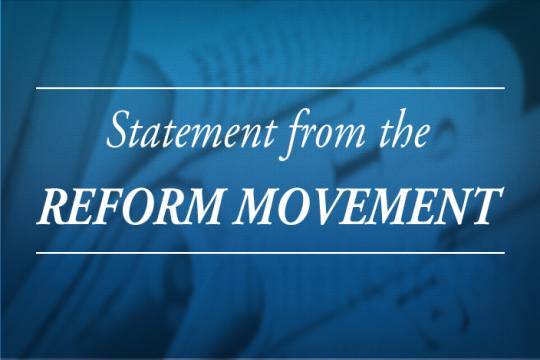
A Letter to the 118th Congress
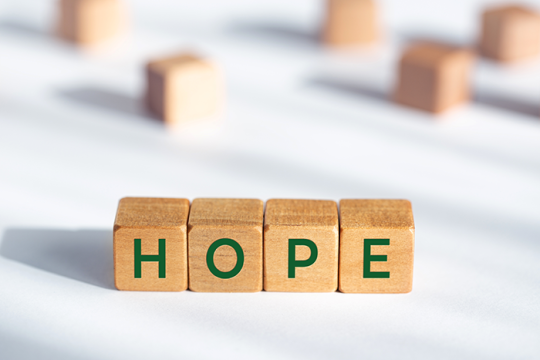
Finding Hope
